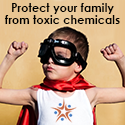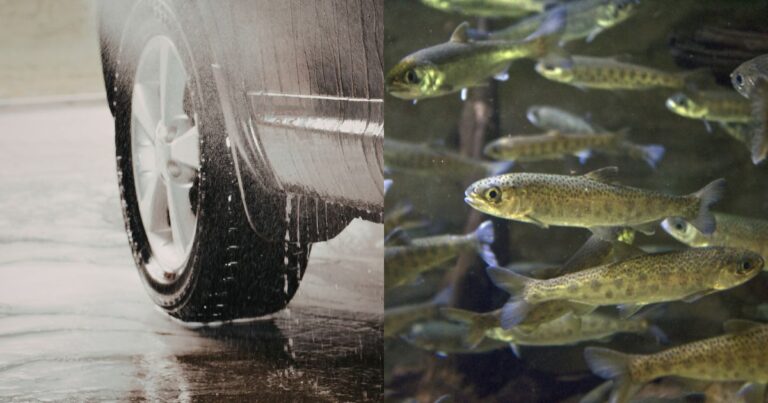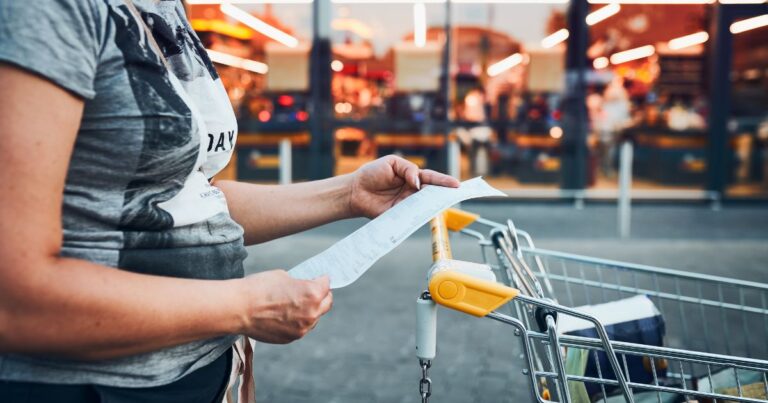A new peer-reviewed study in the journal Environmental Health Perspectives identified seventeen types of chemicals, 102 in total, linked to breast cancer.
The study spearheaded by the scientists at the Silent Spring Institute, found areas in which policy and personal steps are a major opportunity for breast cancer prevention.
As Silent Spring put it,
“Every woman in America has been exposed to chemicals that are linked to breast cancer. Yet little is being done to tackle this problem.”
What did the study find?
There is a lot of information in this study ranging from identifying priority chemicals linked to breast cancer, data on human exposure (studies from the CDC showing how much we are actually exposed to these substances) and ways we can prevent and reduce our exposure to these dangerous chemicals.
Chemicals linked to breast cancer
One of the most alarming parts of the study wasn’t necessarily that 102 chemicals are linked to breast cancer (still shocking), but that we are regularly exposed to these chemicals every day. Data from the CDC shows that these chemicals are routinely found in Americans’ blood, urine and even breast milk.
You may be familiar with some of the chemicals linked to breast cancer as many appear on our Hazardous 100+ chemicals list. Our campaign, Mind the Store, is pressuring the nation’s top retailers to eliminate these harmful chemicals from products on their store shelves.
Summary of the 17 types of chemicals linked to breast cancer:
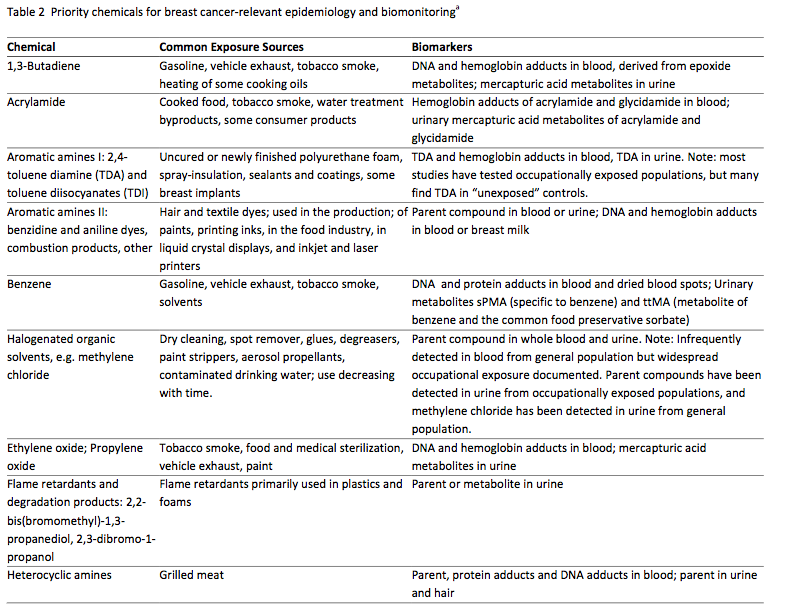 This chart was adapted from the Silent Spring Institute. To read the full list of chemical classes, click here.
This chart was adapted from the Silent Spring Institute. To read the full list of chemical classes, click here.
What can we do?
When you take a step back it’s embarrassing how little our government is doing to protect us from toxic chemicals. Our primary federal law overseeing toxic chemicals is broken and everyone (even the chemical industry) agrees it needs to be reformed.
But to date, chemicals like the ones in this study are perfectly legal to use in products we bring into our homes. We are urging Congress to pass meaningful reform that will limit exposure to harmful chemicals and put public health first.
Seems pretty straight forward, yes? Take a moment to urge your Senator; for real reform of our toxic chemical laws.
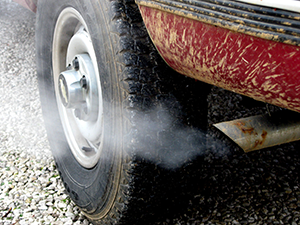
Silent Spring offers simple steps we can take to reduce exposure to these chemicals. These include:
- Avoid second-hand smoke (or first hand).
- Decrease exposure to fumes from gasoline and idling cars. Support anti-idling policies at the local and state level. Turn off your car while waiting for friends or family. Sit inside your car while pumping gas.
- Reduce exposure to diesel emissions through advocating for stricter emissions standards, anti-idling laws, and buying less stuff!
- Use a ventilation fan when you cook and avoid consuming burned or charred food.
- Skip products containing styrene including Styrofoam, plastic cutlery (pack your own reusable cutlery in your purse or car), and use the photo copier at work in a well ventilated area. When purchasing a new copier, look for ones with the Green Guard or Blue Angel seal.
- Avoid dry cleaning, especially those who use the toxic chemical “PERC” – ask for “wet cleaning” instead.
- Filter your tap water, using a carbon block filter.
- Avoid all stain resistant materials including clothing, fabrics, furniture, non-stick pans and rugs.
- Avoid flame retardant chemicals in furniture and foam products. For more information on avoiding flame retardants click here.
- Dust and clean your home on a regular basis. Dust is one of the primary routes of exposure to toxic chemicals, vacuuming with a HEPA filter and regularly dusting can help reduce exposure to chemicals in your home. Open your windows from time to time to air out your home.
Finally, we need a large and systemic shift in our approach to product safety. We clearly need to reform our federal laws on toxic chemicals in a way that is meaningful, and we also need retailers to take the lead in transforming the marketplace.
There’s a lot of work before us, but this study sheds light on the powerful opportunities we have before us.
Join our email list for tips and action alerts. Together, we’ll prevent cancer before it strikes.


